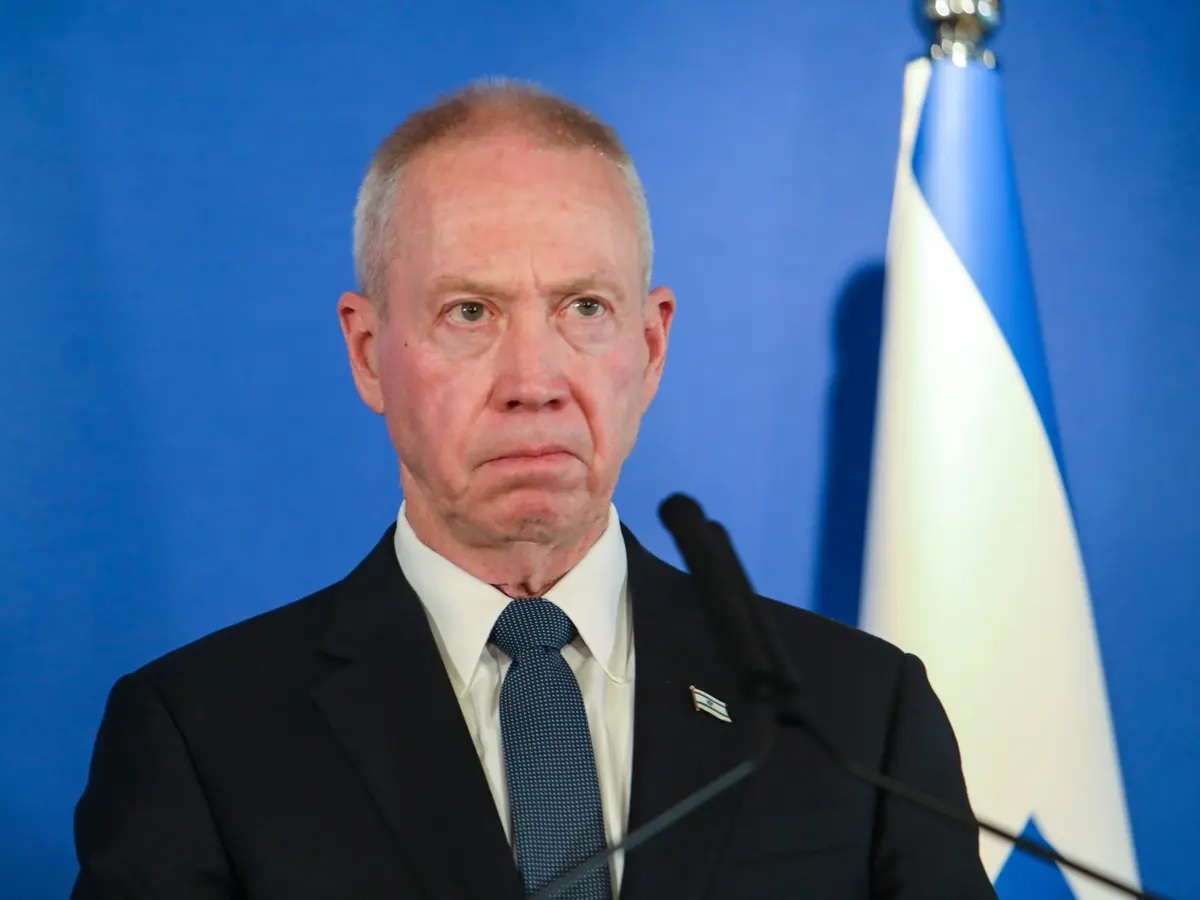Watan-Hebrew media reported that Israeli Defense Minister Yoav Gallant has once again raised, during his visit to Washington this week, the project of establishing a multinational military force in the Gaza Strip, including forces from Arab countries, in a vision for the post-war situation, as stated by two senior Israeli officials to Axios.
The report, citing Hebrew media, pointed out that Gallant made significant progress during his visit to Washington in introducing a multinational force into the Gaza Strip composed of armed entities from three Arab countries in the region.
The Israeli Minister of Defense briefed Prime Minister Netanyahu on this progress, as well as the War Cabinet and the Chief of Staff of the Israeli occupation forces, Hertz Halivi. He intends to proceed with the initiative, according to Israeli media reports.
The multinational force is expected to initially secure humanitarian aid convoys entering Gaza as well as the port being established in the sector.
There are no specific timelines for the implementation of the plan yet, but there is American support and approval to assist in this step, which is directly related to what is known as the “day after” Israel’s war of extermination and starvation against Gaza.
Under the initiative, the United States will lead the multinational force responsible for securing convoys and providing humanitarian aid, even if there are no American forces on the ground.
A senior Israeli official claimed to the source that “such a step will build a new governing body in the sector and exclude Hamas, and will address Israel’s growing problem with the United States regarding the humanitarian situation in Gaza.”
Gallant requested American political and financial support for such an initiative – but not by sending American forces on the ground – during his meetings with Defense Secretary Lloyd Austin, Secretary of State Tony Blinken, and National Security Advisor Jake Sullivan.
According to Israeli officials, the proposal is for an Arab force to remain in Gaza for a limited transitional period and be responsible for securing the temporary sea dock to be built by the United States off the coast and accompanying humanitarian convoys until aid reaches its destination.
Israel has not yet disclosed the names of the Arab countries participating in this operation except for Egypt, fearing that this would complicate the move, which comes against the backdrop of visits by representatives of the Israeli army, directed by Gallant, to those countries and in full coordination with the United States.
What’s happening behind the scenes?
Behind the scenes, a senior Israeli official said that Israeli military and defense officials have discussed this issue in recent weeks with representatives of three Arab countries, including Egypt. The discussions included visits by Israeli officials to those countries.
The Israeli official said, “There is progress in promoting this initiative, both in terms of the Biden administration’s willingness to discuss it and the Arab countries’ openness to the idea.”
On the other hand, an Arab official from one of the countries proposed for the idea said that Gallant seems to have misunderstood the Arab position.
The official said that Arab countries are not ready to send forces to secure aid convoys at the present time, but they may consider sending forces to participate in a peacekeeping force after the war.
Until then, the force should be under U.S. leadership and assembled in the context of working towards a two-state solution, according to the Arab official.
A senior U.S. official said that the idea of a multinational force was raised during Blinken’s discussions with several Arab foreign ministers in Cairo last week.
The American official said that Egypt is the main country studying the idea, but it requires an official invitation from the Palestinian Authority to send Arab forces to Gaza and comes in the political context of a two-state solution.
The Egyptian Foreign Ministry did not immediately respond to a request for comment. Israeli officials said that Gallant and other senior Israeli defense officials are expected to hold talks on the proposal with the United States and potential Arab participants.
